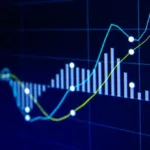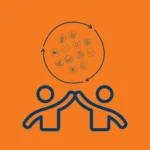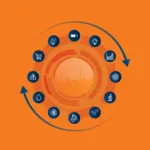A leading project by: ICL Fertilizers Europe C.V. (Netherlands) – Subcategory: Circularity and Climate neutrality
Drawing on its extensive experience in fertiliser production and its strong commitment to Environmental, Social, and Governance (ESG) principles, ICL Group has launched a project to use recycled phosphate in agriculture, in full regulatory compliance. This effort aims to make the European industry more competitive by reducing its reliance on external sources of critical raw materials. Additionally, it addresses global waste reduction by turning waste into valuable fertiliser, contributing to the circular economy, and promoting more sustainable farming practices.

ICL’s global presence and operations reflect the company’s commitment to integrating cutting-edge innovations, like this project, into its broader mission of addressing humanity’s sustainability challenges.
Project Overview
A multidisciplinary team, comprising experts from Production, Research and Development, Regulatory Affairs, Agronomy, Marketing, and ESG, has developed an innovative process to transform organic waste into high-quality mineral phosphate fertiliser. The project aims to introduce alternative sources derived from organic waste, creating a closed-loop system for phosphate nutrients. This initiative not only valorises waste streams but also enhances resource efficiency and reduces environmental impact.
Recycling Organic Waste

The primary source of recycled organic waste in this project is sewage sludge ash, recovered from wastewater treatment plants.
The process involves separating water from the waste to form sewage sludge, which is then incinerated into mineral ash. This ash, rich in concentrated phosphate, is a key component of the project.
Other potential raw materials include struvite, bone meal ash, and precipitated calcium phosphate, broadening the scope and potential of the initiative.
Development and Implementation
Since 2019, the team has been developing products based on recycled organic waste. Investments have been made in infrastructure, including storage silos and a transport system, to handle these materials efficiently. The production process involves two key stages: P-recovery and granulation. The first stage transforms the phosphate source into an intermediate product, while the second stage converts it into granules suitable for agricultural use. These granules offer improved quality and effectiveness compared to traditional phosphate fertilisers.
This approach aligns with ICL’s broader strategy of leveraging innovation to enhance resource use efficiency. By transforming waste into valuable resources, ICL not only reduces environmental impact but also strengthens its position as a leader in driving meaningful impact for a sustainable future.
Strategic Benefits
The initiative helps significantly reduce the EU’s dependency on imported phosphate, classified as a critical raw material by the European Commission. Currently, the EU imports up to 90% of its phosphate needs, posing risks to food security and economic stability. By utilising recycled waste, the project enhances the EU’s resilience and sustainability, contributing to a more circular economy and aligning with broader EU goals.
This project represents a significant advancement in phosphate fertiliser production. Leveraging recycled organic waste offers a sustainable alternative to traditional fertilisers, creating a closed-loop nutrient system. The success of this initiative highlights the potential for recycled materials to meet agricultural needs effectively, while also reducing dependency on external sources of phosphate.
Follow ICL Fertilizers Europe C.V.
- ICL Fertilizers Europe C.V. on X
- ICL Fertilizers Europe C.V. on LinkedIn












